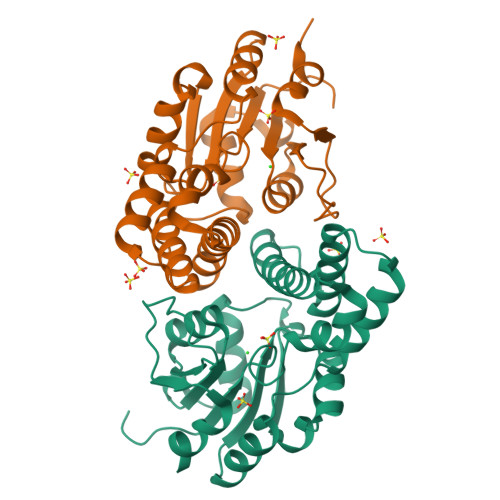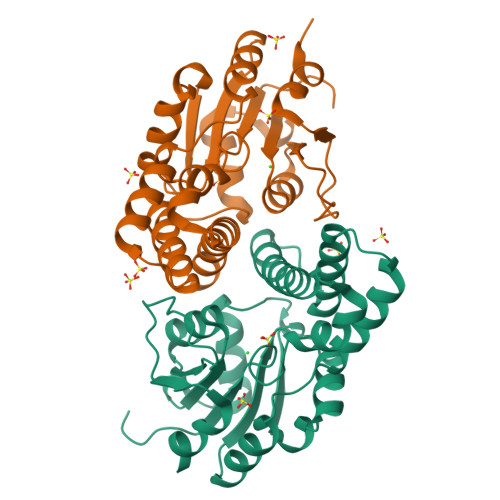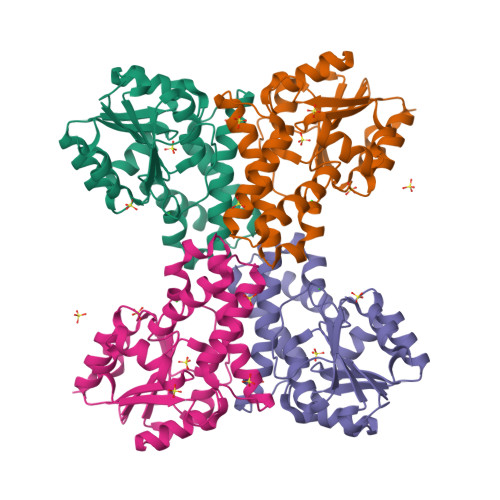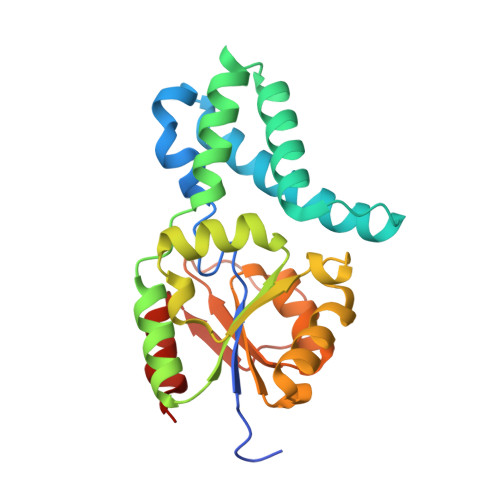Crystal structures of the substrate free-enzyme, and reaction intermediate of the HAD superfamily member, haloacid dehalogenase DehIVa from Burkholderia cepacia MBA4
Schmidberger, J.W., Wilce, J.A., Tsang, J.S.H., Wilce, M.C.J.(2007) J Mol Biology 368: 706-717
- PubMed: 17368477
- DOI: https://doi.org/10.1016/j.jmb.2007.02.015
- Primary Citation of Related Structures:
2NO4, 2NO5 - PubMed Abstract:
DehIVa is a haloacid dehalogenase (EC 3.8.1.2) from the soil and water borne bacterium Burkholderia cepacia MBA4, which belongs to the functionally variable haloacid dehalogenase (HAD) superfamily of enzymes. The haloacid dehalogenases catalyse the removal of halides from haloacids resulting in a hydroxlated product. These enzymes are of interest for their potential to degrade recalcitrant halogenated environmental pollutants and their use in the synthesis of industrial chemicals. The haloacid dehalogenases utilise a nucleophilic attack on the substrate by an aspartic acid residue to form an enzyme-substrate ester bond and concomitantly cleaving of the carbon-halide bond and release of a hydroxylated product following ester hydrolysis. We present the crystal structures of both the substrate-free DehIVa refined to 1.93 A resolution and DehIVa covalently bound to l-2-monochloropropanoate trapped as a reaction intermediate, refined to 2.7 A resolution. Electron density consistent with a previously unidentified yet anticipated water molecule in the active site poised to donate its hydroxyl group to the product and its proton to the catalytic Asp11 is evident. It has been unclear how substrate enters the active site of this and related enzymes. The results of normal mode analysis (NMA) are presented and suggest a means whereby the predicted global dynamics of the enzyme allow for entry of the substrate into the active site. In the context of these results, the possible role of Arg42 and Asn178 in a "lock down" mechanism affecting active site access is discussed. In silico substrate docking of enantiomeric substrates has been examined in order to evaluate the enzymes enantioselectivity.
Organizational Affiliation:
School of Medicine and Pharmacology, The University of Western Australia, Perth, Australia.



















